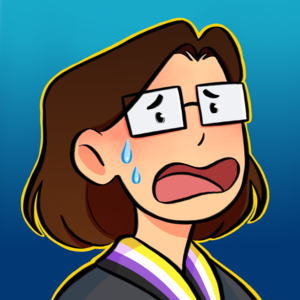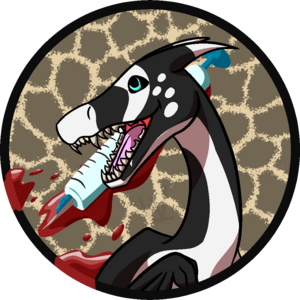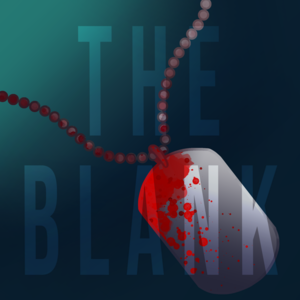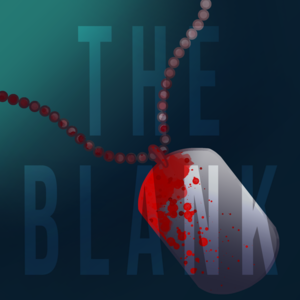Step one: study the genetic structure of Anomalies. Step two: understand why these mutations have begun occurring. Step three: develop a vaccine to protect newborns from the mutation. Step four: eradicate Anomalies from the Earth entirely.
People call Anomalies the next stage of evolution, the inevitable outcome of our ever-changing genetics in our tumultuous times. I know the truth. Anomalies are a genetic mistake, a little blip on the molecular level that just happens to look fantastical, seem amazing, and sell well in Hollywood. Comics and movies romanticise the idea of Anomalies and their acceptance into human society. But this isn’t race or gender, this isn’t about acceptance, this is about safety.
---
We were 13 when Josie's powers emerged. She could summon fire with her mind, or that’s what we used to believe as children. In reality, her pyrokinesis was a result of mutated genes that caused abnormally high body temperature, allowing her to ignite the flammable gases in the air through friction as small as snapping her fingers. With just a touch and some focus, she could set anything ablaze. Her favourite trick was to clap her hands together, a bright flash of flames would flicker out with a flourish.
In the first few months of gaining her abilities, Josie would occasionally burn herself, necessitating bandages all up her arms when she lost control. But that never stopped her.
“Are you okay?” I asked one day when I saw that her left hand covered in bandages again.
“Fine, fine,” she replied, “The doctors said that I can get fire retardant clothing and stuff, but it’s kinda pricey. So I’m just trying to be careful. But! Check this out!”
She pulled out a piece of paper and placed her unbandaged hand on it. I saw the paper start to sizzle and smoke, and then a small fire began where her palm was. She pulled her hand away and I watched as the fire spread, charring the edges of the paper and disintegrating the white into nothingness. She dropped the paper and the ashes fluttered to the ground.
“That’s awesome!” I exclaimed, “Do it again?”
“Sure!” She knelt down on the grass, reaching her hand forwards and carefully touching a stray dandelion. The little buds set alight one by one, curling and twisting in the burning heat as they charred to a crispy black, crumbling into grey ash and dust.
We laid down on the grass, basking in the summer sun, our shoulders barely touching. We split my Kit Kat bar and talked about our futures as if there would never be an end to the number of tomorrows.
“So if you had a superhero name, what would it be?” I asked, dusting the crumbs off of my shirt.
“Hmmm,” she paused dramatically, then glanced at me, “How about Pyro.”
“No, no, that’s been taken by Pyro!”
“Who’s that?”
“You know,” I said, nudging her gently in the arm, “Pyro, from X-Men! He controls fire and stuff.”
“Oh, I should check that out,” she replied, “Didn’t know that! Well uhm, what about something like… Flame Princess.”
“No, no, I think that’s a thing already.”
“What about just… Flamelord.”
I snapped my fingers, “Flamelord, I like it!”
She snapped her fingers in response, and a spark of flame danced upon her finger tips before quickly fading away. We laughed, set more grass on fire, and talked about our superhero alter egos.
I dreamed about discovering some sort of awesome power, some mutation that made me special.
I never did. I was human as they came. I was top of the class, though nowhere near those gifted with super-intelligence, already off studying quantum mechanics at nine. My bright mind was all I had, and yet it paled in comparison to Josie’s incandescent fire.
---
Changes began when we were 14. Josie missed a full week of school and didn’t call me or text me. I paid a surprise visit to her house and spent far too long standing in front of the garden, looking over the charred remains of grass shaped like vague footprints. Life and death, all compiled into the pretty image of black steps burned into the bright green suburban lawn.
I rang the bell and waited, noticing that the brass doorknob had been distorted, melted out of place. Josie’s mum answered the door
“Hey, you came to see Josie?” she asked, ushering me in, seeming both shocked and a little relieved. I glanced at the floor: there were burns along the carpet and the polished wooden panels. Worse: there was a handprint scarred, scorched into the wall.
“Where is she?” I asked.
“I’m afraid you can’t see her right now,” she replied, shaking her head, “She’s in quarantine.”
“But… where is she?”
“Hospital,” she replied, choking up a little. She smiled through the obvious pain and gave me a pat on the shoulder. “She started running a fever. And it only got worse, so we had to call 999. They said that she had to be taken somewhere safer…”
“Is she… is she gonna be okay?”
“I hope so. They said she’ll be coming back in a couple of days. Then she’ll be back in school.”
“Okay,” I said, looking around the house again. There were burns everywhere. I could map out Josie’s stumbling trajectory by the mass of footprints scattered along the house. I wondered how terrifying it must have been: every step you take burns and hurts, and there is nowhere in the world that will save you from your own searing heat.
Josie returned a few days later, good as new. We thought it must have been a momentary blip, a small side effect that came with great power. Still, her family worried about her health so much that her dad planned a very specific diet to avoid catching fevers, and her mum bundled her up excessively during the winter to avoid the cold. Anything to raise her immune system, all to protect her from herself.
---
At 16, the fevers returned with renewed force.
“I’m fine,” she said one day in class, smiling and clutching onto her side. Her voice was strained and she was beginning to break out in cold sweat. “Think it’s period cramps.”
“You sure?” I asked, “You don’t want to go to the nurse?”
“No, no thank you. I’ll be fine.”
Then, she fainted.
I saw the floor beneath her sizzle and burn as it touched her skin. Her uniform was slowly catching fire. I tried to pick her up, but her skin was too hot to touch and I had to drop her. The ambulance came rushing to the rescue, and they carted her off to quarantine with third degree burns all along one side of her body.
But she was resilient.
She grew stronger.
After that incident, the flames no longer affected her skin, no longer burned her or scarred her. She excitedly handed me a lighter and held her arm up to me.
“Go ahead,” she said, “Light me on fire.”
I hesitantly agreed, and to my surprise nothing happened. Her skin didn’t even blacken or char in contact with the flame. She adapted; she evolved.
Maybe her fevers were just her body’s way of slowly adapting to her own abilities. She seemed happy enough, smiling and cartwheeling and no longer afraid of the blazed trail she would leave behind.
But it was optimistic to believe that the sickness would stop. I wanted to help her, to hold her, to do anything to save her from the crippling pains she was forced to bear. I watched as she deteriorated, her bright inferno spluttering into a flickering flame that struggled to stay lit, forcing me to accept that I was powerless in her wake. The fevers grew more persistent, and she was forced into quarantine once a month as they became more frequent and more lethal. I wasn’t allowed to visit her until the end of the fever, but I remember the image, burned into my memory, of her shivering, crying, waiting for the pain to stop.
Classes were empty without her. I missed her presence more than I missed my dad when he went on business trips. More than I missed my mother when she left us. I missed having that person to talk to, to play with, to laugh at, to confide in.
The times I saw her became more infrequent, and even then, I was scared that anything I said could break her. I was scared that this would make her fragile, I was scared that we’d never be the same as before.
“I’ll be fine,” she said after a long bout in quarantine, “I’ll be fine… I might have to resit this year, though.”
“What?” I asked, “Why?”
“I’ve missed like, half the year… dunno, teachers might be nice about it but like, I dunno, I feel so out of the loop. Mum said maybe I should get home schooled.”
“But then I won’t get to see you,” I said. She laughed and took my hand, leading me away. Her skin was so hot that I almost pulled away on instinct.
“Aw, it’s okay! We can still hang out together, you know? You come over like usual, we can joke, and all that.”
“But you won’t be here. You’ll leave me alone.”
“I think you’ll be fine without me,” she replied. “You’ve been doing just fine so far, right? You’ll be fine, I promise.”
“Will you be fine?”
“You know I will be.”
---
The week after her 18th birthday, she was pulled out of school and placed in permanent quarantine.
“The scan came back,” Josie told me, fiddling with her cannula. “It’s bad.”
“How bad?” I asked, my heart pounding in my chest in fear. “You’re gonna be alright, right?” I reached over to place my hand on her wrist, but the heat made me flinch away. She watched, looking betrayed, then turned away.
“It’s…it’s what they feared…I…They said it’s a rare condition called hypermutation. It’s…it’s when, I don’t even know, it’s like cancer. It’s like, your cells keep duplicating out of control, and that’s what happened to me, my…my Anomaly gene didn’t stop, it just kept developing, kept growing and evolving but…it’s grown too much.”
I took her hand in mine and held it tightly, trying to ignore the searing pain her heat scarred into my skin.
“It’s…” she choked up behind the tears and shook her head, “It’s spreading…the fevers aren’t going down, my immune system is failing, I can’t control it anymore…I set my arm on fire the other day, and it didn’t hurt, it didn’t feel like anything, but I couldn’t put it out. And I was so scared, I was so scared.”
She brought her free hand up, staring at it, shaking. “They said…they said it, they said there’s no cure, that there’s nothing in the world that can fix me….I don’t, I don’t--” She choked up and bent her head forwards. Her tears rolled down her cheek only to evaporate into wisps of steam.
“You’re going to be okay,” I said, trying my best to be supportive, the tears rolling freely down my face, “They can fix you, they’ll find a way--”
“They can’t,” she cried, “There’s nothing they can do. They’ve tried everything, mum and dad have called in all sorts of specialists-- The doctor said I have probably a month left, and that it’ll hurt, that it’ll hurt so much.”
She gripped my hand so tightly, as if I was the only thing in the world keeping her grounded. “I don’t want to die,” she sobbed, “There’s a million things I haven’t done, I can’t, I can’t--”
“Does it hurt now?” I asked.
“So much,” she sobbed, looking up at me with her tear-streaked face, steam rising as if she were smouldering. “It hurts so much. Sometimes I can’t breathe, because it burns my throat. And I can’t drink water sometimes because it… it evaporates in my hands, or I melt the glass, or burn the bottle. And sometimes it gets so hot that the medical equipment melts and… and they can’t do anything, and I can’t--”
“I’m so sorry,” I sobbed, leaning my head forwards, closer to her, “I wish I could do something. Anything.”
“There’s nothing you can do,” she sobbed. “It’s not your fault… I just, I’m so sorry.”
“Why are you sorry?”
“I don’t want to leave you alone… I don’t want to leave you alone here.”
“Hey,” I said softly, “It’s not about me, it’s about you. I’ll be fine.”
“I wanted to be here with you forever,” she sobbed, looking right into my eyes, “I wanted to grow up with you, I wanted, I just--”
She paused, bringing her other hand over to place over mine, “I love you.”
“I love you too,” I replied, returning the gesture by placing my hand over hers. Two lovers, hands gripped so tightly in fear that we’d lose one another in the blaze of life. “But I’ll be fine. You’ll be fine.”
“I’m going to die.”
The tone of finality rang through my ears.
“I’m here,” I said, “I’m here, it’s going to be okay.”
“I don’t know what to do, Kate,” she sobbed, the distress making her hand hotter and hotter. I didn’t want to pull away, but I could feel my skin sizzling under the intensity of her rough fingertips. “I don’t know what to do…”
“You’ll be okay,” I said, “You can fight this, you can keep on fighting this.”
“I can’t… I’ve been fighting for the past year, I’m not, I’m not getting any better…” She paused, looking away and pulling her hands from mine. I gently placed my hand on her cheek and turned her to face me again.
“Please don’t feel bad,” she said, staring at me with those pitiful eyes, glistening with the tears that would never fall. “Please don’t feel bad, Kate, it’s my choice…”
“What do you mean?” I asked, “What’s your choice?”
There was a long silence. Everything slowed down; my heart was racing out of control and yet time had stopped. I watched the flutter of her chest as she tried to breathe, steam from her tears surrounding us. I could see the words caught in her throat, unable to set themselves free.
“I’m going to… I’m going to let them kill me,” she said, voice wavering.
“What? Why?!” I grabbed her by the hands again, “Why? You can’t just, you can’t--”
“Please,” she begged, “Please try to understand, please don’t make this harder than it has to be…”
“Josie…”
“I want this, Kate… I can’t live like this, I don’t want to die a slow painful death of dehydration, I don’t want to burn my own lungs! It’s better, they’ll just euthanise me… my parents understand, they don’t want it, but they understand… can’t you understand too?”
I stared at her. I wasn’t sure how to feel or what to say. Was I supposed to be upset? That would only make her feel guilty and upset too. But I couldn’t just accept it either. I knew from this moment that I would never let anyone feel my pain—her pain. Nobody deserved to die, nobody deserved to watch their friend’s body slowly burn itself up in its own fire.
“I’ll miss you,” I sobbed, no words capable of articulating this undeniable, indescribable pain. This wasn’t about me, or anybody… This was about Josie. It was all about her, it was the last choice she’d ever get.
---
I gave a eulogy at her funeral. Her life burned like the flames she ignited: bright, stunning, and momentary.
I watched as her coffin was lowered into the ground, realising I would never see her again: never see her smile as she told me her plans for us, living in a small cottage in the Lake District with seven different dogs; or hear her laugh at her own bad jokes; or hold her hand. Her warm hands that left scars and burns upon mine, mementos of happier times, reminders of what we could have been.
We would never get to have that future we talked about. She would never get to see the tomorrow that we planned together.












Comments (4)
See all